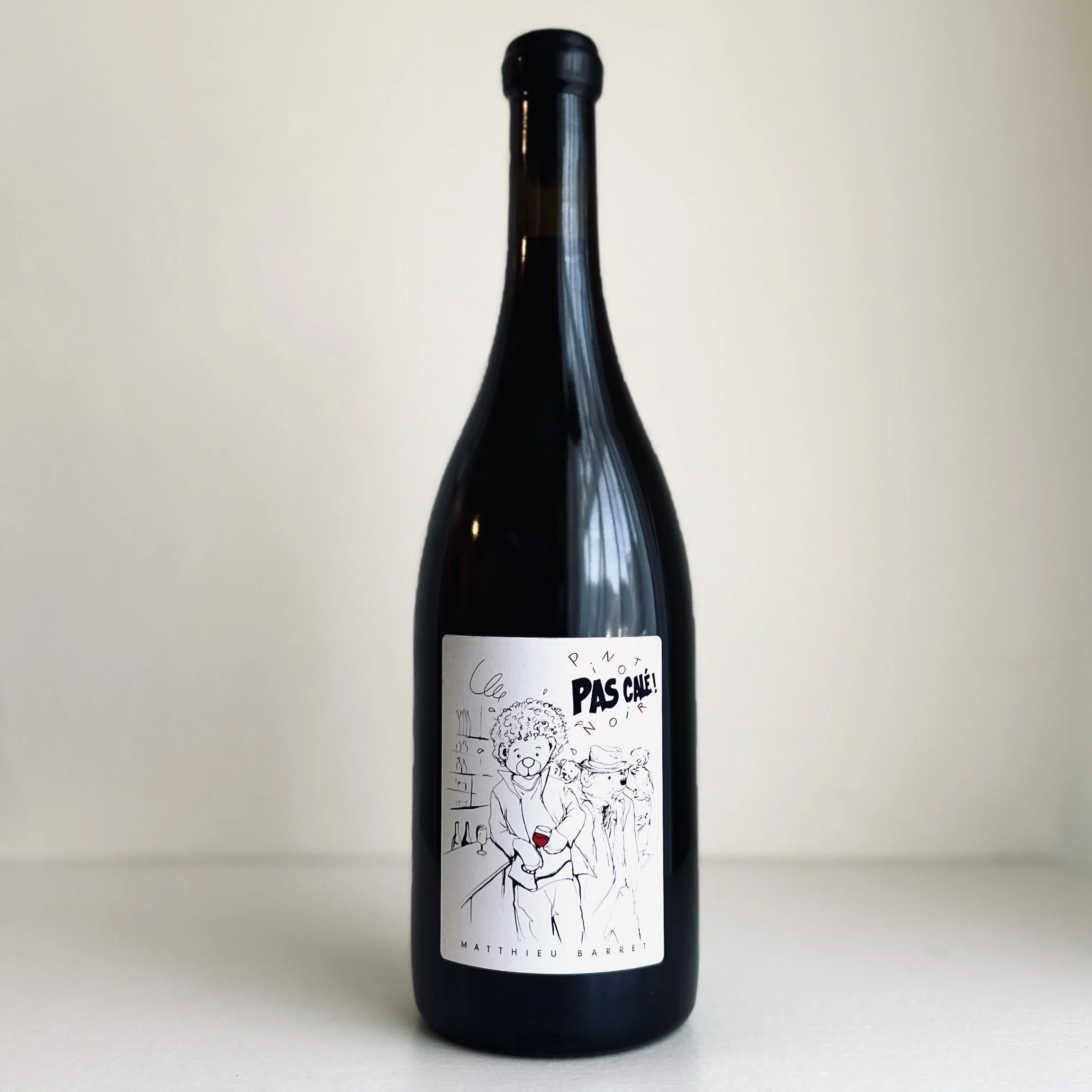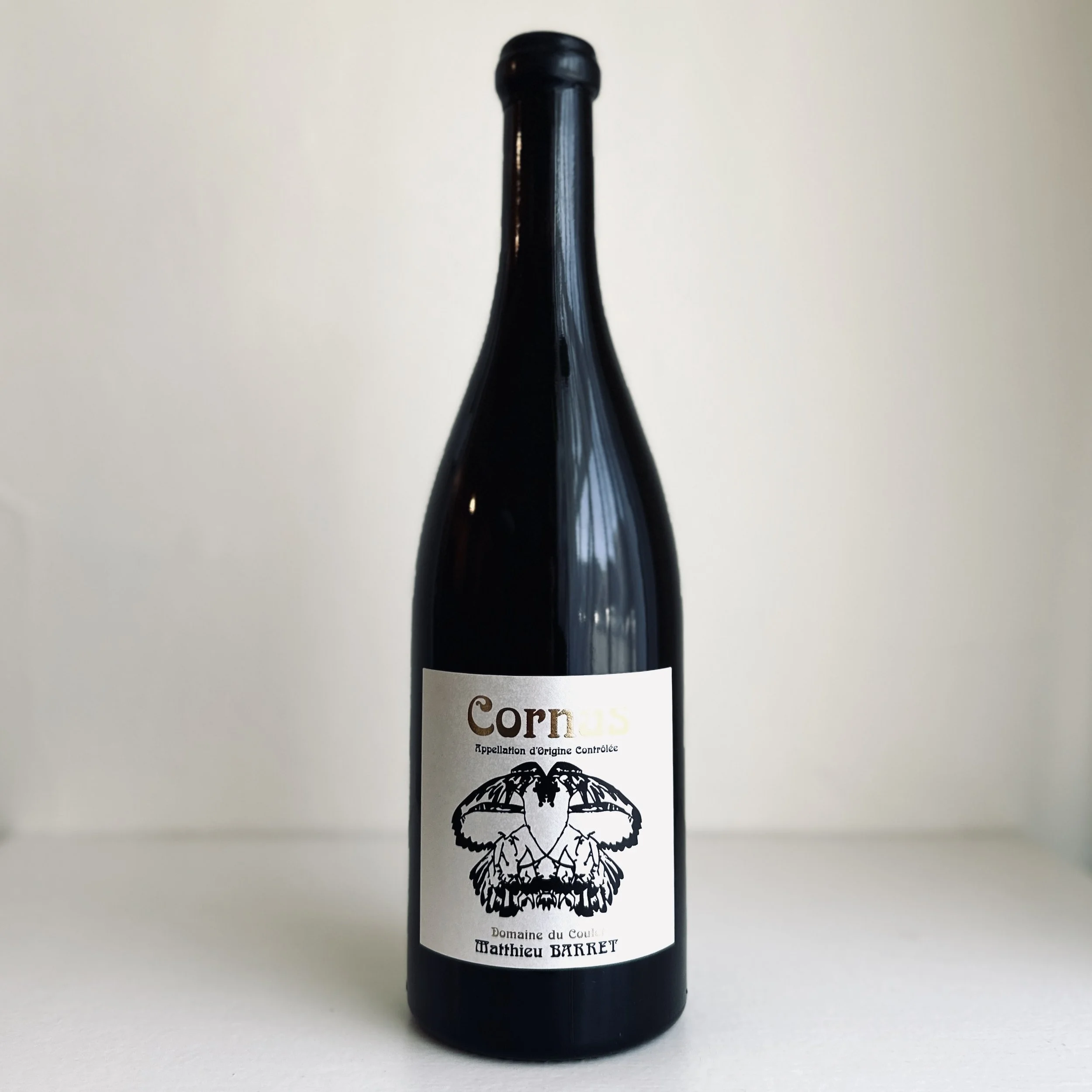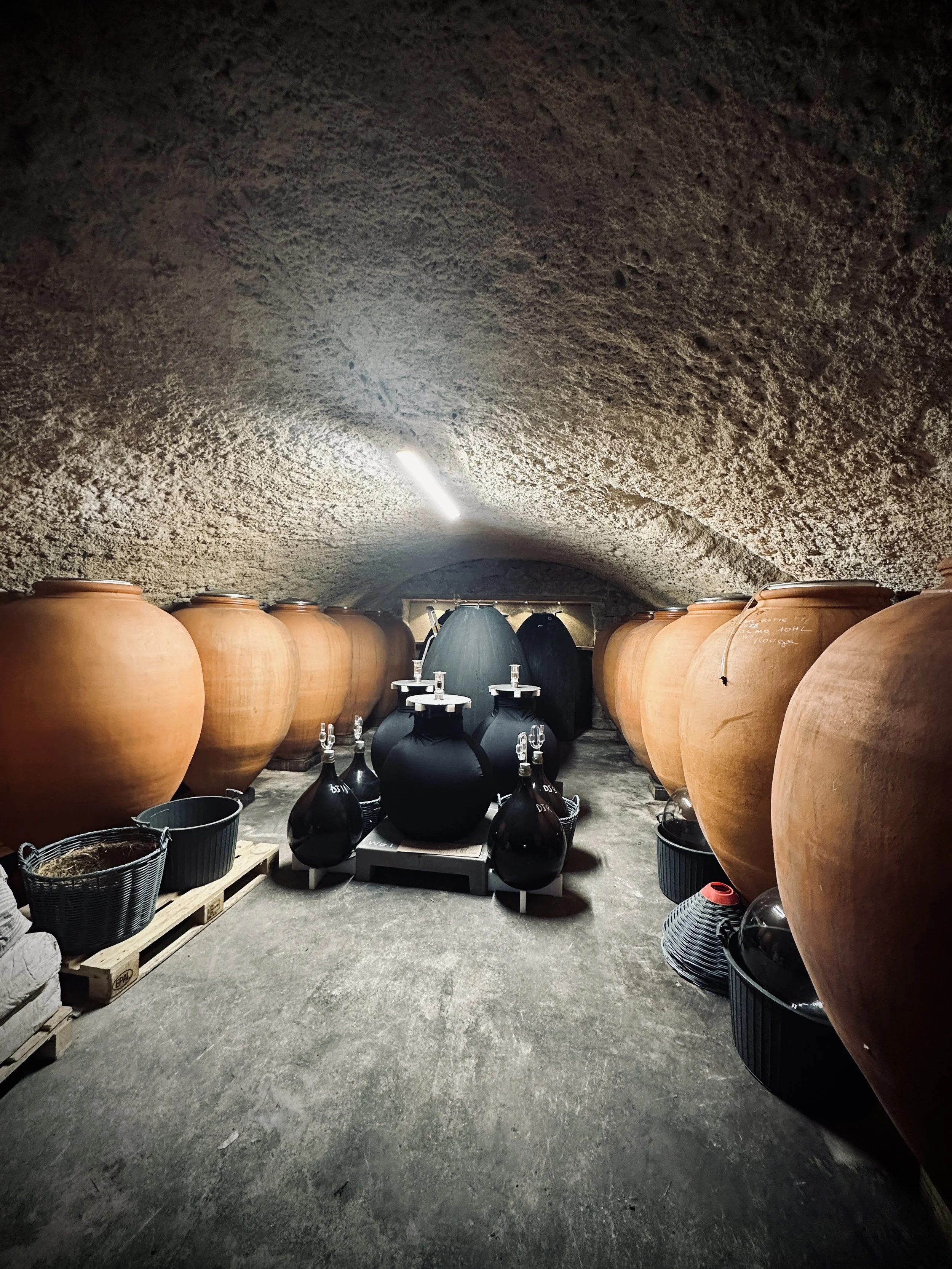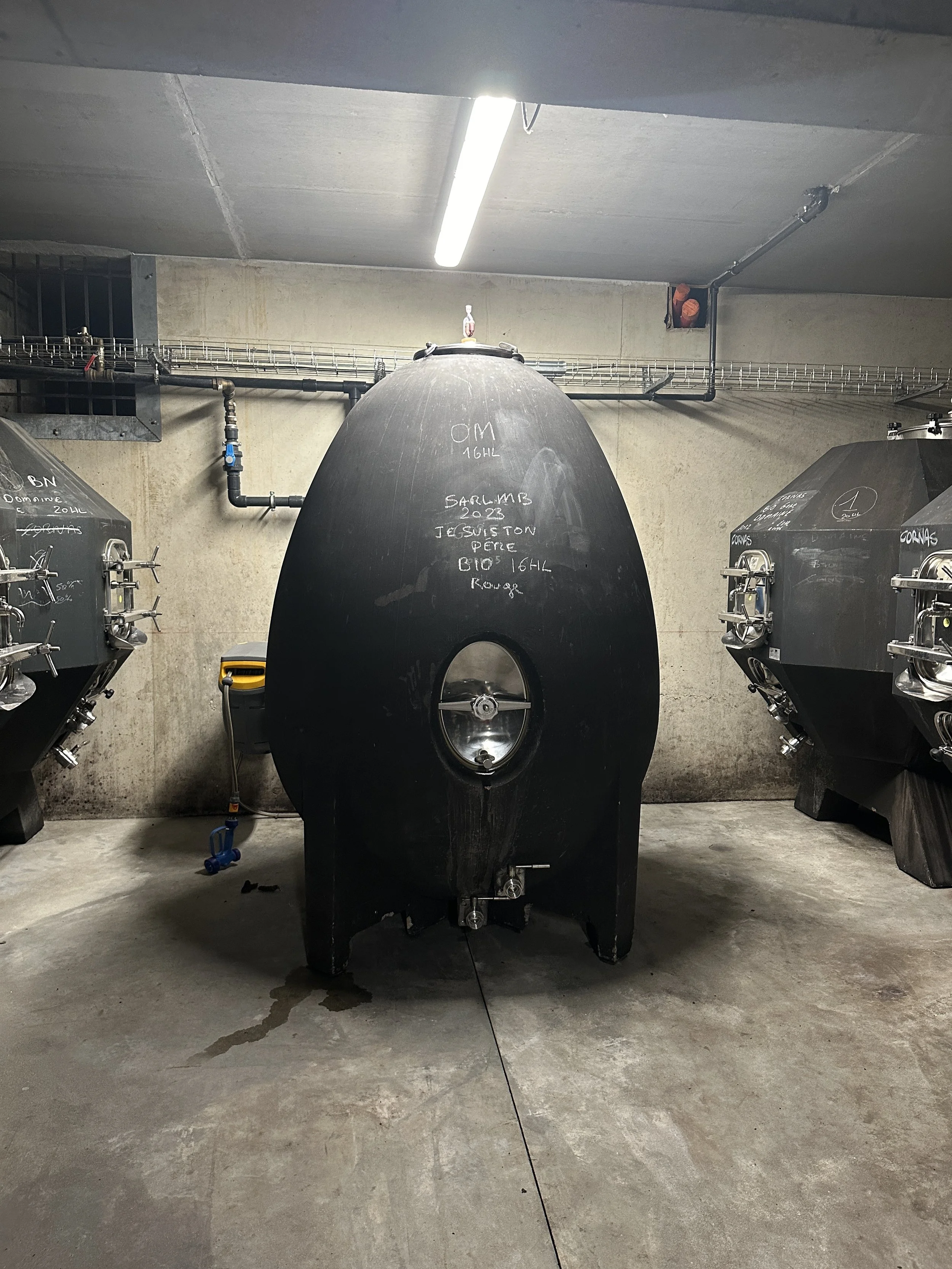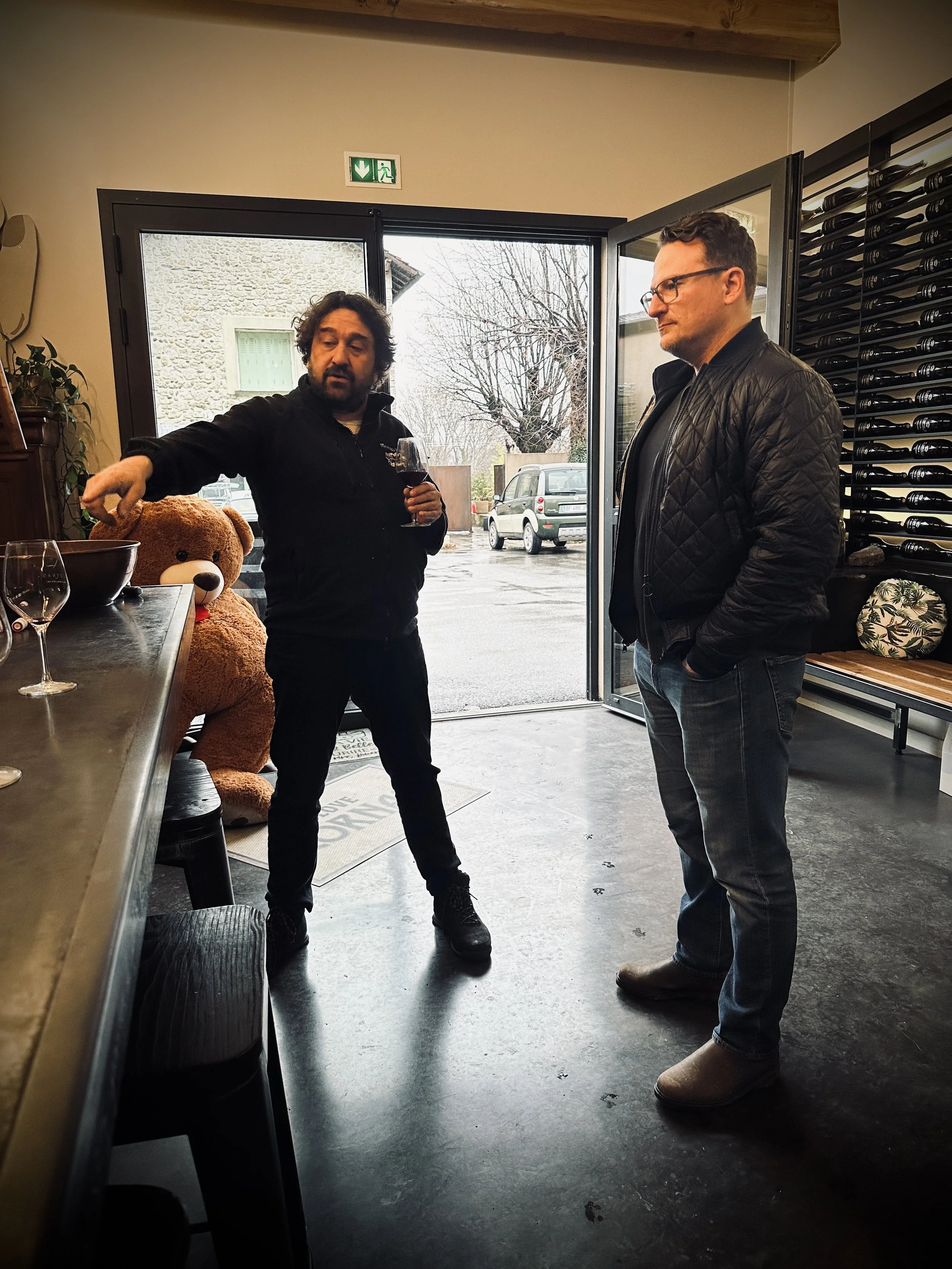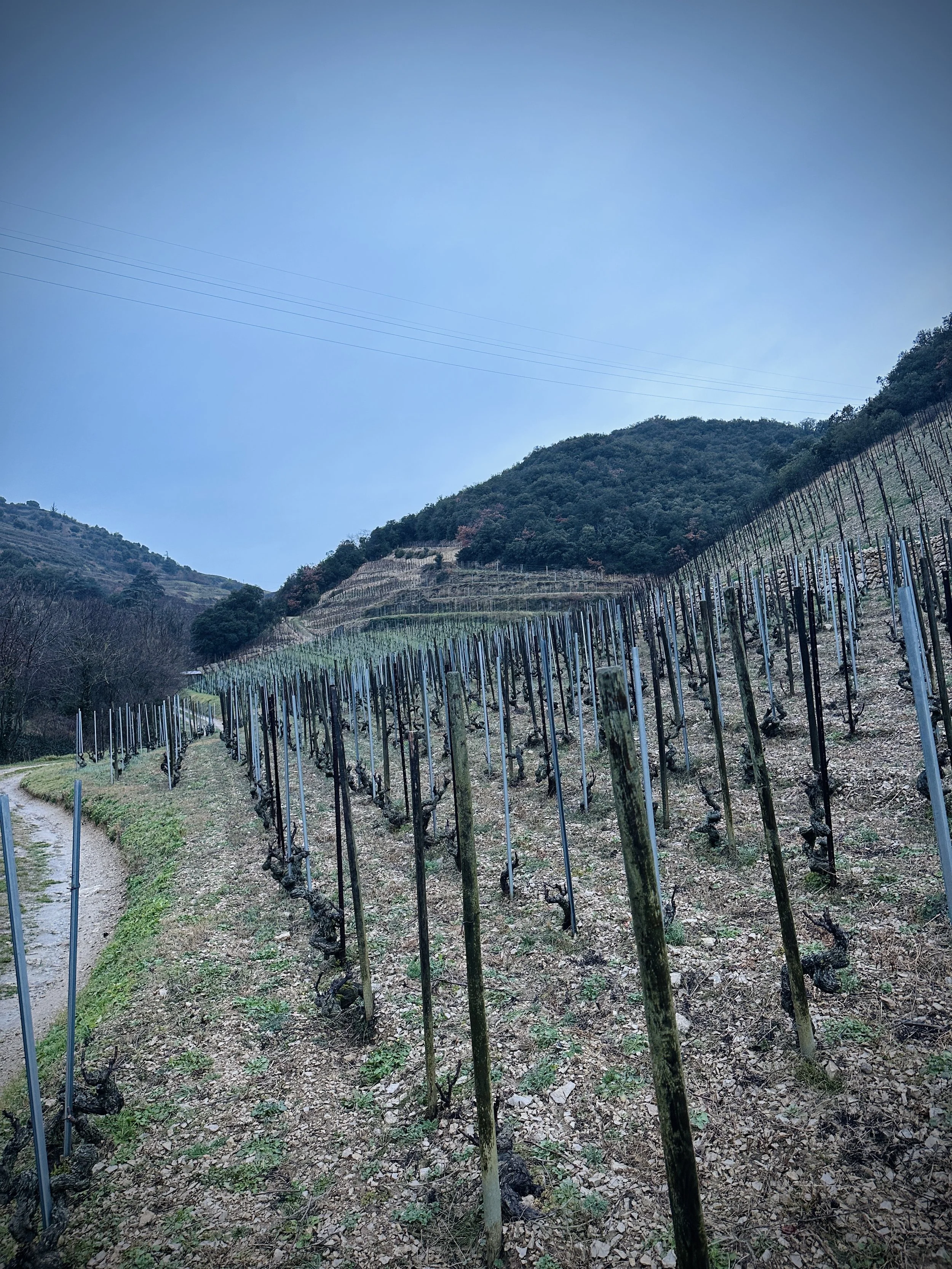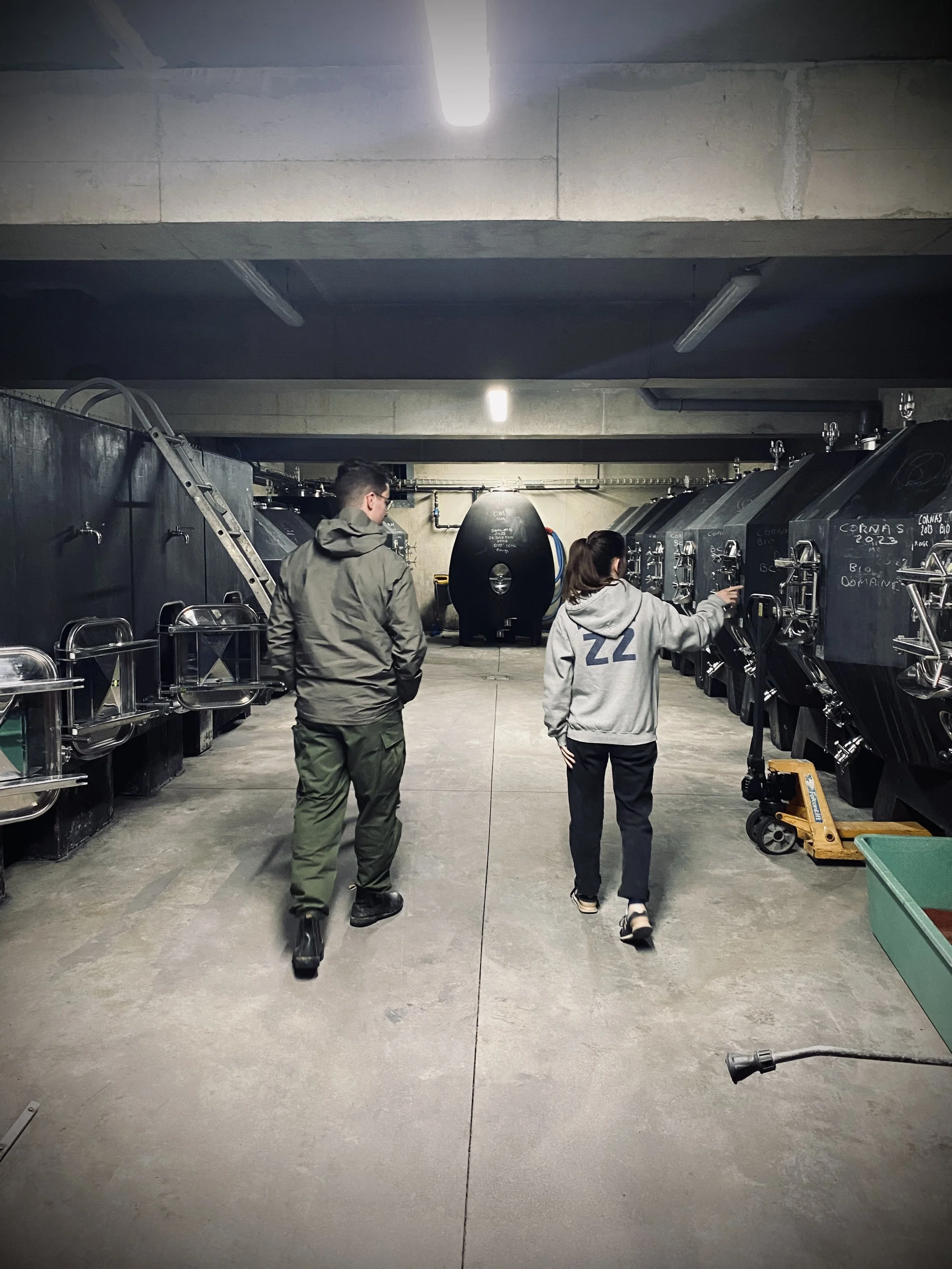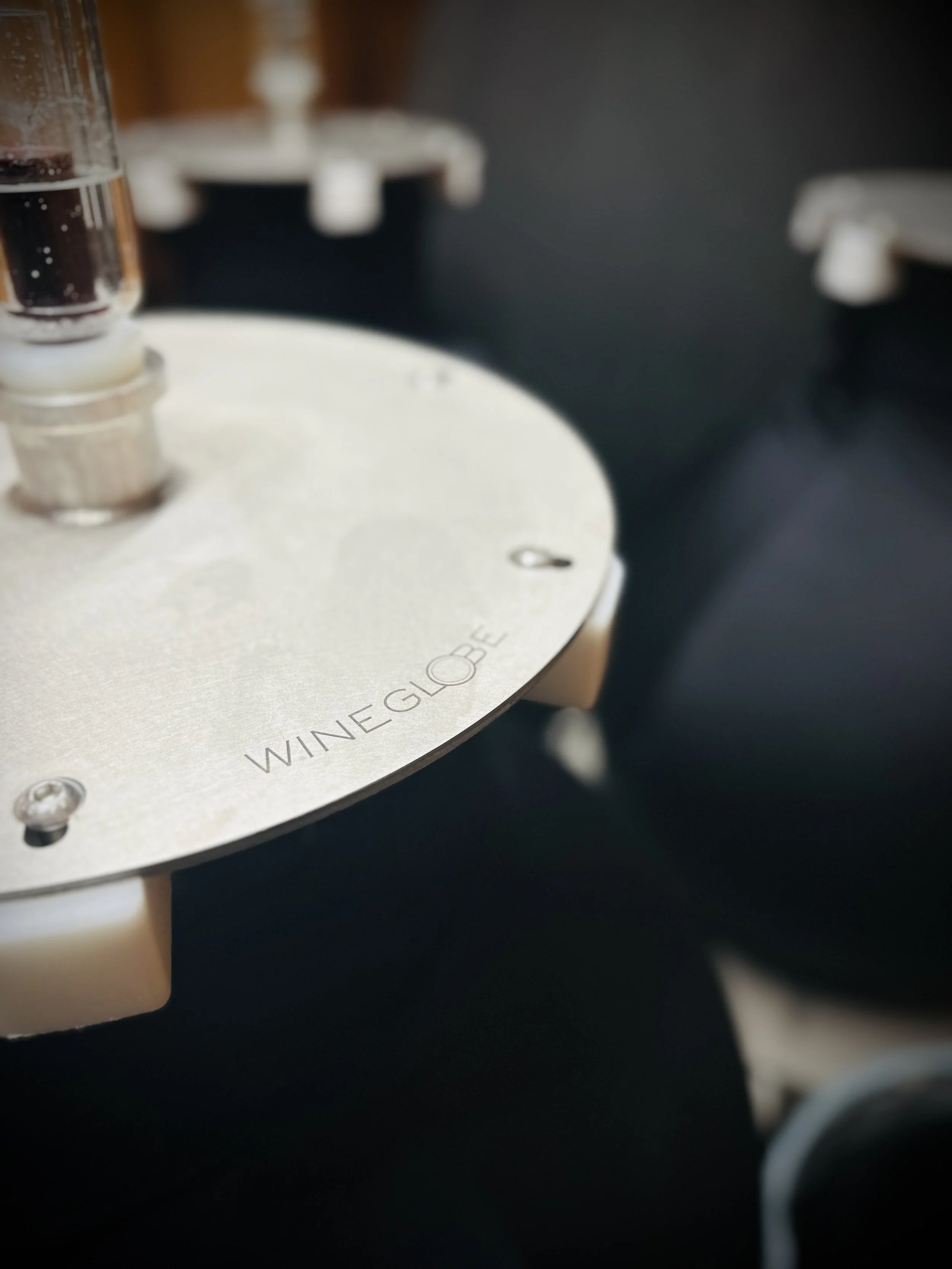MATTHIEU BARRET
2022 PETIT OURS ROUGE
This wine is made from Syrah grown near Visan in Vaucluse. It is farmed by Matthieu’s friend Rémi Pouizin whose family has been working organically for sixty years. The vines average fifty years old and are rooted in limestone and clay. The grapes are destemmed and fermented in concrete and stainless steel for two weeks before being pressed off. After a nine-month élevage the wine is racked twice, lightly filtered if necessary, and bottled with 10-20 ppm of SO2 under Ardeaseal corks. 13% ABV
2022 PETIT OURS BLANC
This wine is made from Roussanne (60%) and Marsanne (40%). The former is planted on sandy clay-loam over a calcareous bedrock while the latter is on limestone and clay. Matthieu works with the Famille Rozel in Vallaurie, Florent Bacconnier in Allan, and Remi Pouizin in Visan, all of whom are practicing organic. The average age of vines is roughly twenty-five years between the three sites. Grapes are gently whole cluster pressed into tank where the juice undergoes an eighteen-hour settling before being racked. Matthieu typically adds a little SO2 (max 20 ppm) before primary fermentation. After an eleven- month élevage in stainless steel the wine is lightly filtered and bottled with up to 20 ppm of SO2. 752 cases were produced.
2022 VILAIN
2022 NO WINE’S LAND ROUGE
2023 NO WINE’S LAND BLANC
2023 PAS CALÉ
Matthieu trades a small amount of Syrah from Cornas for Pinot Noir from Pommard with his friend Phillipe Pacalet. The 35-year-old vines are deeply rooted in Jurassic clay-limestone. The grapes undergo carbonic maceration in flex tank for three weeks with occasional pump-overs of released juice. The pressed juice takes an additional two weeks to finish fermenting. The wine then spends eight months in 54L glass dame Jeanne and WineGlobe on full lees before bottling unfined, unfiltered, and with 20ppm of SO2.
2022 QUINQUIN
2022 SAINT-JOSEPH D86
Grown in the town of Sarras just north of Hermitage. The 30-year-old vines are rooted in granite and wind-blown loess. After destemming into tank, the wine undergoes a week of pump-overs followed by a week of punch-downs. It is then pressed into concrete and amphora for élevage. 318 cases were produced.
2021 CORNAS BRISE CAILLOUX ROUGE
This is the estates flagship wine. It is typically a blend of all their parcels (Mazards, Patronne, Arlettes, les Eygas, Coulet, and Jouvet) planted between 1920 and 2014 with ancient selection massale. Soils on these impossibly steep slopes are primarily granite. Matthieu typically destems this cuvée into concrete eggs of varying shapes and sizes for fermentation. He likes to keep the temperatures quite cool to preserve aromatic intensity during the three weeks on skins. Élevage takes place in amphora and concrete for eighteen months before it is lightly filtered for bottling with 20 ppm of SO2.
2019 CORNAS BRISE CAILLOUX BLANC
At the northernmost corner of Cornas, you’ll find both the Sommet Nord and Plateau des Arlettes. Planted on decomposed granite and clay-limestone loam, these 13-year-old vines are an anomaly. In a region dedicated exclusively to red grapes you’ll find Roussanne (50%), Marsanne (40%) and Viognier (10%). The grapes are pressed and settled in tank over night before being racked with 20 ppm of SO2 for fermentation and élevage in stainless steel. After a nine-month élevage, the wine is lightly filtered and bottled with 20 ppm of SO2. 242 cases were produced.
2022 INGLORIOUS BROCARD SAINT-PERAY
This wine comes from the Northern Rhone commune of Saint Peray. Marsanne is grown on the steeply terraced lieu-dit of Fauterie on pure granite. The 25-year-old vines are tended by Cyril Milosevitch. Whole clusters are pressed into stainless steel for settling. The following day the juice is racked into tank for fermentation and élevage. The wine is lightly filtered before bottling with 20 ppm of SO2. 250 cases were produced.
2018 CORNAS GORE
Matthieu’s top wine comes from Sommet des Arlettes, a north and east facing lieu-dit in Cornas. The soils here are severely weather granites locally known as Gore. The fifty-year-old vines were planted with selection massale. The grapes are destemmed and fermented in concrete on skins for three weeks with occasional pigeage. The wine is then basket pressed into concrete egg for a two-year élevage. It is occasionally lightly filtered before bottling with a minute 10ppm of SO2. 167 cases were produced.




